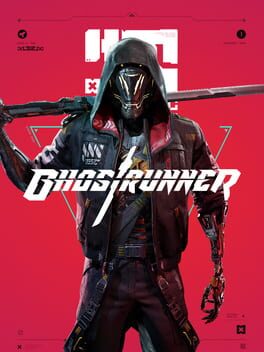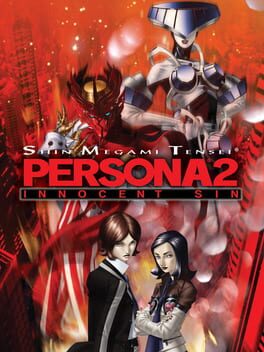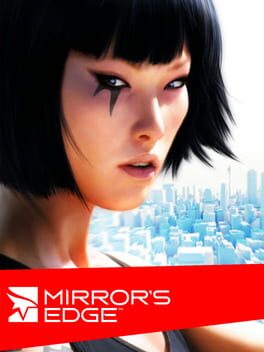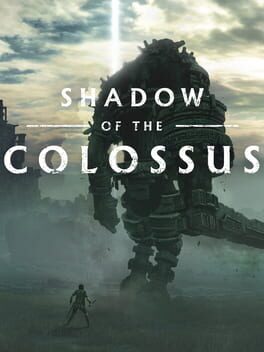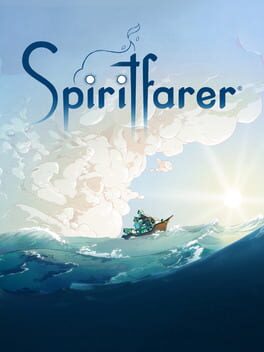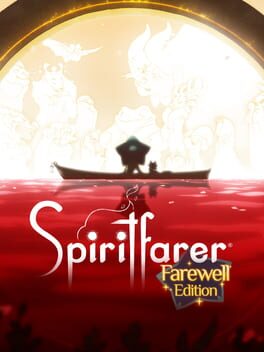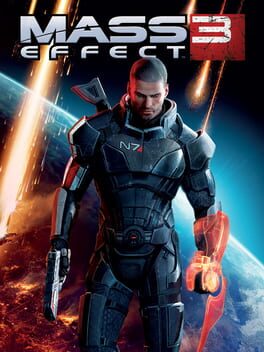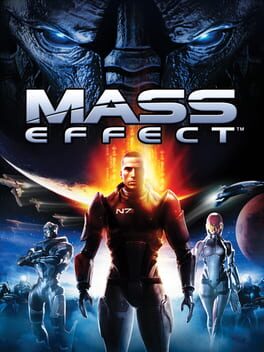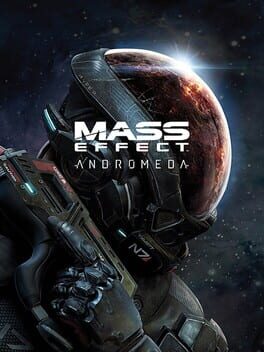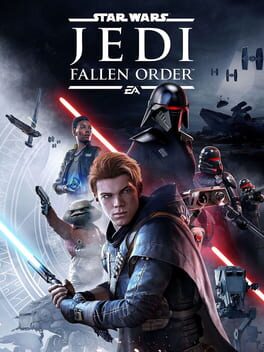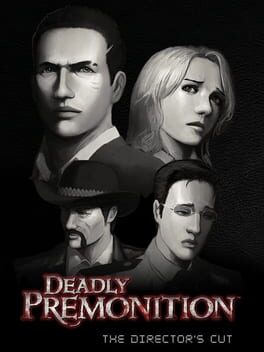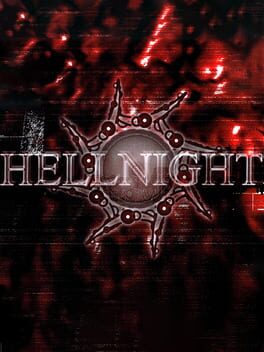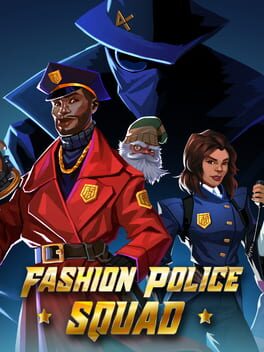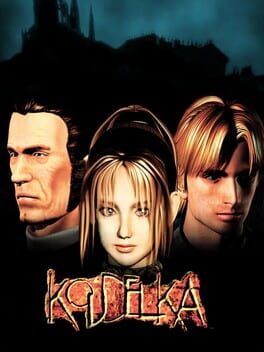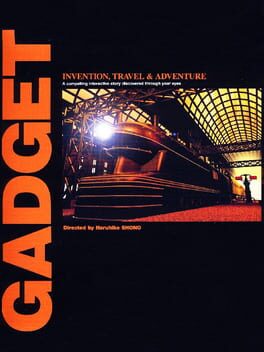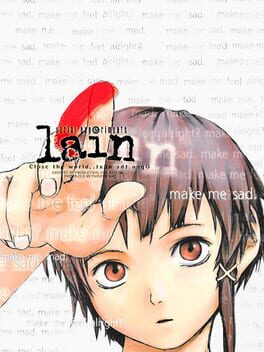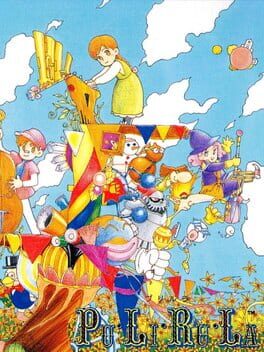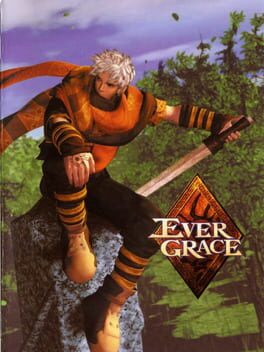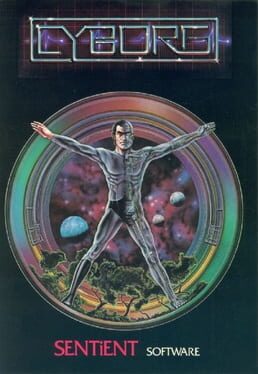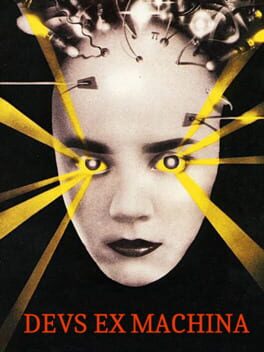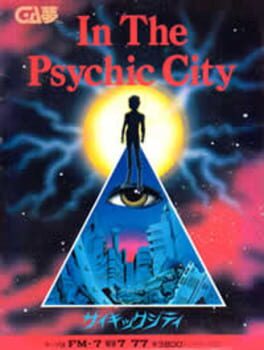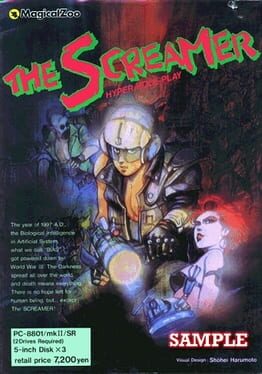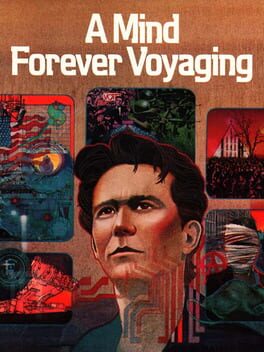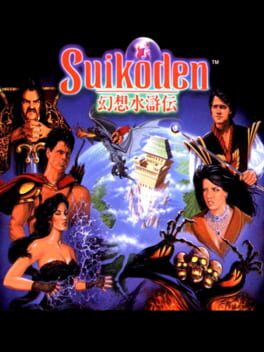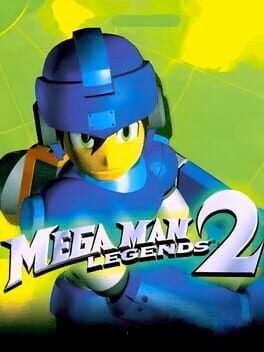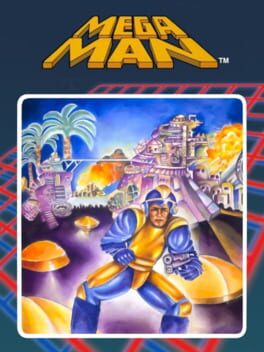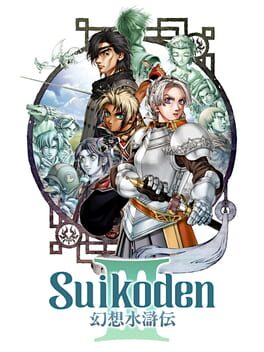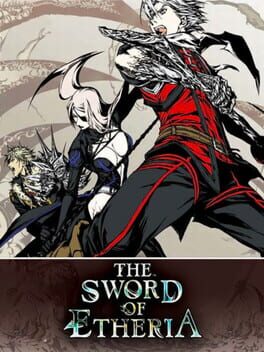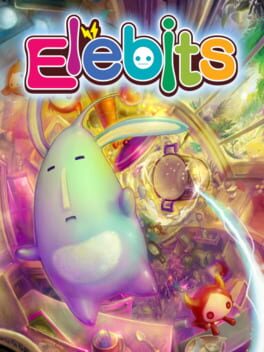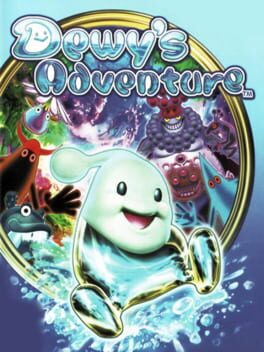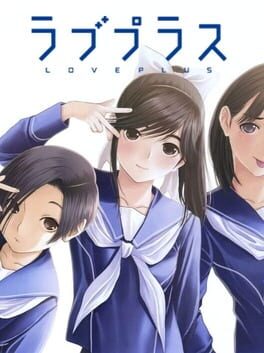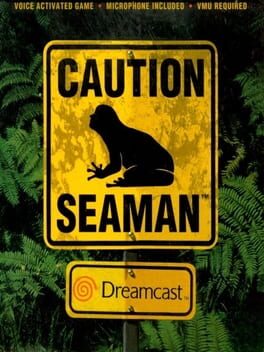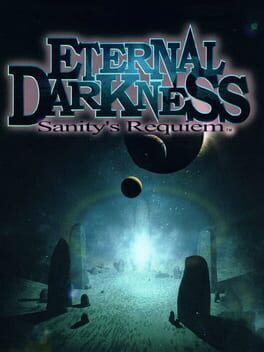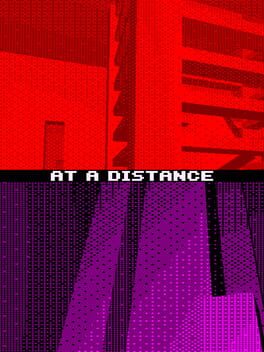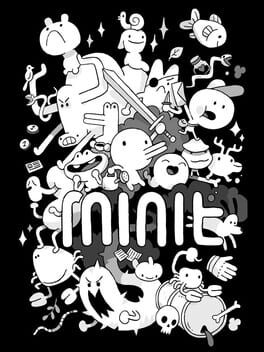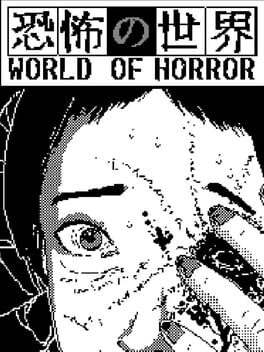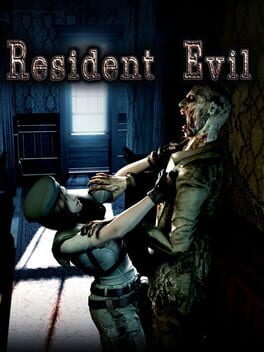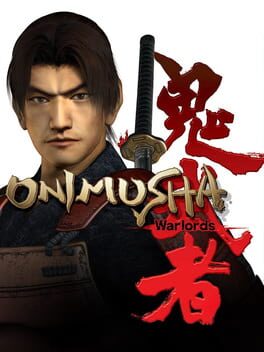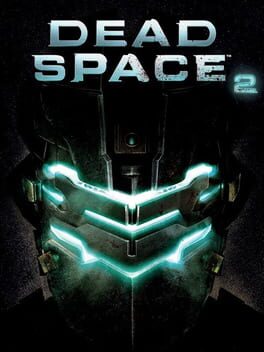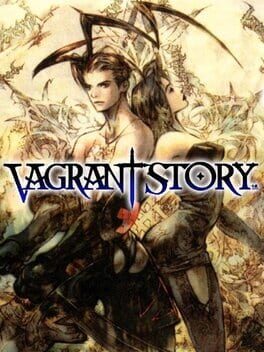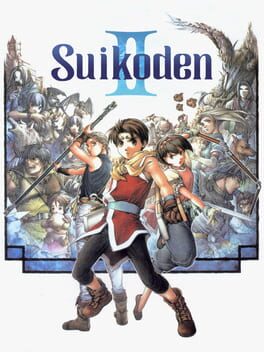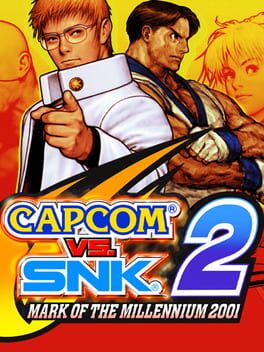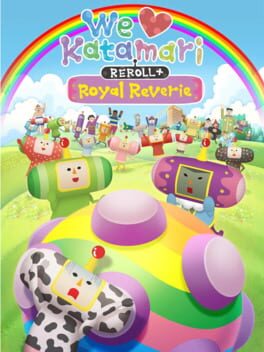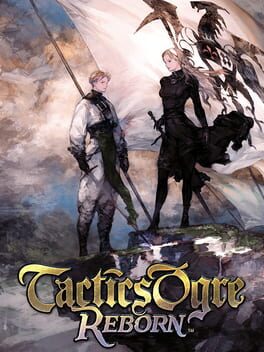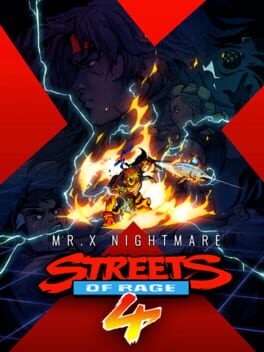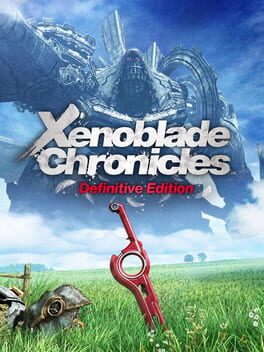TheDerpMan
20 reviews liked by TheDerpMan
Ghostrunner
2020
A cyberpunk ninja parkour action platformer, that never let me enjoy it for very long. You will navigate to the end of each stage through as combination of running, dashing, sliding, wall running, firing a hook into valid spots, attacking with your sword, blocking or deflecting enemy shots, and making use of a few stage gimmicks and abilities. A game where, if you are typically good at games like I am, you will probably die anywhere from 10-50 times a level while feeling like maybe 1/4-1/5 of those were actually your fault.
You never have quite as much control of yourself as you should in a game like this and the game seems to struggle with handling momentum of your moves or when doing things like using fans to propel you. You can potentially use the game's poor upgrade system that has you putting a small number of abilities enhancements into a slowly expanding grid in a way that is like trying to maneuver Tetris blocks of different sizes so that you can fit the most skills you want. Through this you can gain additional dashes you can use one after the other before waiting for them to charge, but you can't use multiple in the air for some reason. When you dash in the air you can hold the button to slow time down and maneuver left or right but not in any other direction and you will always have to dash when you let go, making what the game seems to want you to use that skill for more awkward than it has to be. You will constantly stick to walls while wall running (as you can basically grab any surface not just ones that are presented as a path forward) which lead to some both funny and ridiculous situation where I was desperately trying to fall down to attack enemies below me while trying to fight my character to get off the damn walls. At times there are fan like jumping platforms that seem to throw you random distances, I'd go over the same one in seemingly the same way only to completely miss a platform, to be thrown directly on a platform, to almost make it and need an air dash to land, or to be thrown over the place you are meant to land.
You gain four combat abilities as you play that can be used as you charge up a focus meter. One that allows you to do a long dash through enemies, killing ones that are in a row. Never bothered to use it. A push back move that can also push back enemy shots, since I can already parry I never bothered to use it. A ranged wave sword attack that seems like the only really useful thing you get, never used it. And at the very end of the game a move to hack an enemy to get them to attack their allies, tended to just get them killed after they got one kill so seemed weaker than the first and third ability so I never used it (not that I had much time to). The enemies are never really challenging so I just didn't see a reason for them, even less so with potentially long focus build time. Your upgrade blocks are so limited in what you can actually take it seemed like a waste to gain any bonuses to these over the ability to parry enemy shots and to dash more often.
The game can be really bad at letting you know where to go. Not properly lighting things or just expecting you to expect some random hookable spot to appear. There were dozens of times where I followed a clear path laid out through whatever traps and enemies, only to end up jumping off a cliff or back down to an earlier section because any guiding elements just stopped. Oh, you didn't know to look up and left at the hookable spot that was suddenly going to appear as you jumped, well fuck you.
It looks fine, it is a pretty generic setting with the usual terrible graffiti everywhere with messages like, "open your eyes", "wake up". With the generic setting comes a generic story of evil scientist who wants to turn people into robot abominations taking over society from a megalomaniac, now an AI in your head, that views everyone as tools to preserve society to live on in the place he built to preserve humanity from the destroyed outside world.
Horrible tedious and momentum killing VR segments that partly serve as info dump but are mostly done to include mediocre poorly thought out puzzles, until the end of the game where the VR world suddenly plays like a normal running sequence and due to lack of enemies is probably one of the better parts of the game.
Issues running in DirectX 12 mode which is required for ray tracing, even in DirectX11 it seemed to have trouble starting.
Screenshots: https://twitter.com/Legolas_Katarn/status/1396948301992185856
You never have quite as much control of yourself as you should in a game like this and the game seems to struggle with handling momentum of your moves or when doing things like using fans to propel you. You can potentially use the game's poor upgrade system that has you putting a small number of abilities enhancements into a slowly expanding grid in a way that is like trying to maneuver Tetris blocks of different sizes so that you can fit the most skills you want. Through this you can gain additional dashes you can use one after the other before waiting for them to charge, but you can't use multiple in the air for some reason. When you dash in the air you can hold the button to slow time down and maneuver left or right but not in any other direction and you will always have to dash when you let go, making what the game seems to want you to use that skill for more awkward than it has to be. You will constantly stick to walls while wall running (as you can basically grab any surface not just ones that are presented as a path forward) which lead to some both funny and ridiculous situation where I was desperately trying to fall down to attack enemies below me while trying to fight my character to get off the damn walls. At times there are fan like jumping platforms that seem to throw you random distances, I'd go over the same one in seemingly the same way only to completely miss a platform, to be thrown directly on a platform, to almost make it and need an air dash to land, or to be thrown over the place you are meant to land.
You gain four combat abilities as you play that can be used as you charge up a focus meter. One that allows you to do a long dash through enemies, killing ones that are in a row. Never bothered to use it. A push back move that can also push back enemy shots, since I can already parry I never bothered to use it. A ranged wave sword attack that seems like the only really useful thing you get, never used it. And at the very end of the game a move to hack an enemy to get them to attack their allies, tended to just get them killed after they got one kill so seemed weaker than the first and third ability so I never used it (not that I had much time to). The enemies are never really challenging so I just didn't see a reason for them, even less so with potentially long focus build time. Your upgrade blocks are so limited in what you can actually take it seemed like a waste to gain any bonuses to these over the ability to parry enemy shots and to dash more often.
The game can be really bad at letting you know where to go. Not properly lighting things or just expecting you to expect some random hookable spot to appear. There were dozens of times where I followed a clear path laid out through whatever traps and enemies, only to end up jumping off a cliff or back down to an earlier section because any guiding elements just stopped. Oh, you didn't know to look up and left at the hookable spot that was suddenly going to appear as you jumped, well fuck you.
It looks fine, it is a pretty generic setting with the usual terrible graffiti everywhere with messages like, "open your eyes", "wake up". With the generic setting comes a generic story of evil scientist who wants to turn people into robot abominations taking over society from a megalomaniac, now an AI in your head, that views everyone as tools to preserve society to live on in the place he built to preserve humanity from the destroyed outside world.
Horrible tedious and momentum killing VR segments that partly serve as info dump but are mostly done to include mediocre poorly thought out puzzles, until the end of the game where the VR world suddenly plays like a normal running sequence and due to lack of enemies is probably one of the better parts of the game.
Issues running in DirectX 12 mode which is required for ray tracing, even in DirectX11 it seemed to have trouble starting.
Screenshots: https://twitter.com/Legolas_Katarn/status/1396948301992185856
Among Persona fans, there are those who proclaim Persona 2 as the pinnacle of the series, and you know what? I totally get them now.
After having played both P1 and the first part of the P2 duology, I can't help but appreciate the differences between the old games and P3 to 5. Honestly, I'm glad P1 and 2 are not all like P3 to 5 because I don't think I'd have enjoyed them as much.
P2's gameplay is a major step up from its predecessor. It's pretty much the standard JRPG experience, and it can be a bit tedious at times, but just like in P1, it was worth trudging through. That being said, the encounter rate is still shit. It's not as torturous as in P1, but it's still annoying.
But let's talk about what really shines here—the story and characters. Man, the plot is just so darn intriguing and good. It's got its dark, heavy moments, but then it throws in these bursts of humor and wackiness that really keep things lively. And I think they did a pretty good job at balancing the humor and seriousness, which enriches the overall experience and leaves a lasting impression. The cast is also great. Each member of the main cast is carefully designed, with their interactions filled with chemistry and undergoing significant development as the journey unfolds. I really enjoyed my time with them. However, after P1, the soundtrack here takes a noticeable dive. While there are a few standout tracks, the overall soundtrack is kinda forgettable, which is a shame.
P2 Innocent Sin might have some outdated and average gameplay, but it's got one of the best stories and characters Atlus has ever cooked up for a Persona game. Finishing it has only got me more hyped for Eternal Punishment, especially because I get to see more of Maya and meet even more grown-up characters, who are the main cast this time around. An adult cast in Persona? Yeah, it's really old-school, huh?
After having played both P1 and the first part of the P2 duology, I can't help but appreciate the differences between the old games and P3 to 5. Honestly, I'm glad P1 and 2 are not all like P3 to 5 because I don't think I'd have enjoyed them as much.
P2's gameplay is a major step up from its predecessor. It's pretty much the standard JRPG experience, and it can be a bit tedious at times, but just like in P1, it was worth trudging through. That being said, the encounter rate is still shit. It's not as torturous as in P1, but it's still annoying.
But let's talk about what really shines here—the story and characters. Man, the plot is just so darn intriguing and good. It's got its dark, heavy moments, but then it throws in these bursts of humor and wackiness that really keep things lively. And I think they did a pretty good job at balancing the humor and seriousness, which enriches the overall experience and leaves a lasting impression. The cast is also great. Each member of the main cast is carefully designed, with their interactions filled with chemistry and undergoing significant development as the journey unfolds. I really enjoyed my time with them. However, after P1, the soundtrack here takes a noticeable dive. While there are a few standout tracks, the overall soundtrack is kinda forgettable, which is a shame.
P2 Innocent Sin might have some outdated and average gameplay, but it's got one of the best stories and characters Atlus has ever cooked up for a Persona game. Finishing it has only got me more hyped for Eternal Punishment, especially because I get to see more of Maya and meet even more grown-up characters, who are the main cast this time around. An adult cast in Persona? Yeah, it's really old-school, huh?
Mirror's Edge
2008
Shadow of the Colossus is justifiably praised for its atmosphere and art, but I really struggled to finish it. So much of the game is tedious and frankly, boring at times. When I finally got to a Colossus, I got a rush of excitement, clinging on while a Colossus shook you was pretty fun at first, but it's certainly not enough to entertain me 16 times in a row. But what really bothered me the most were the utterly atrocious controls. The horse was just a pain to ride.
I can appreciate the spectacle. It's beautiful, ambient and sadly a chore to play.
I can appreciate the spectacle. It's beautiful, ambient and sadly a chore to play.
Spiritfarer
2020
This review contains no spoilers, but it reveals how the game's structure works in a general sense. I wouldn’t recommend reading it unless you’ve played a little bit already.
Spiritfarer is a narrative-focused management game, and that description is deceptively informative: it’s not a story game with management, it’s a management game with a story. The short pitch is that you’re the ferrymaster to the deceased, so it’s easy to expect the game to be mostly therapeutic heart-to-hearts with your passengers, but the reality is that 95% of your time will be spent running daily errands for them on your massive houseboat. Grow some plants, catch some fish, start a meal in the oven, go spin some thread as it cooks, smelt ore until you arrive at the next island, jump off and start chopping trees for a new house… you’re constantly juggling these little jobs, and most dialog is just getting new tasks or being told how well you’re doing. While the character growth and narrative progression are wonderfully executed, these sorts of interactions are awash in a sea of repetitive, filler responses to the egregiously repetitive list of errands. The idea was that by having each spirit demand so many specific amenities, players could bond with them over time and get used to their presence on the ship before they inevitably depart. Considering how important it is to convey a sense of loss in a game about death, it’s a sound theory, but the vast amount of repetition turns your passengers from living people into blatantly artificial checklists. After the first few characters make it to the Everdoor, the suspense is gone, and it’s harder to get attached to the new spirits when you know they’re just going to put you through the same food/house/improvements/quest/Everdoor cycle as before. The people who enjoy the crafting and sailing for its own sake might not feel this is a problem, and that a repetitive, slow pace is exactly what one should expect from the genre, but the way it smothers a beautifully unique narrative hook was unavoidably disappointing to me. In spite of how amazing some of the character moments are, and of how wonderfully it's presented overall, these qualities won’t balance out the mundanity if you’re anything less than a crafting enthusiast. Luckily, that’s probably most people, and I’m probably the weird one for never having gotten sucked into Minecraft, Terraria, Stardew Valley, or something comparable. If you love any of those games, I would highly recommend Spiritfarer, and I’ll sit here in jealousy that you get to enjoy a game I was just a few hours of chores away from actually loving.
Spiritfarer is a narrative-focused management game, and that description is deceptively informative: it’s not a story game with management, it’s a management game with a story. The short pitch is that you’re the ferrymaster to the deceased, so it’s easy to expect the game to be mostly therapeutic heart-to-hearts with your passengers, but the reality is that 95% of your time will be spent running daily errands for them on your massive houseboat. Grow some plants, catch some fish, start a meal in the oven, go spin some thread as it cooks, smelt ore until you arrive at the next island, jump off and start chopping trees for a new house… you’re constantly juggling these little jobs, and most dialog is just getting new tasks or being told how well you’re doing. While the character growth and narrative progression are wonderfully executed, these sorts of interactions are awash in a sea of repetitive, filler responses to the egregiously repetitive list of errands. The idea was that by having each spirit demand so many specific amenities, players could bond with them over time and get used to their presence on the ship before they inevitably depart. Considering how important it is to convey a sense of loss in a game about death, it’s a sound theory, but the vast amount of repetition turns your passengers from living people into blatantly artificial checklists. After the first few characters make it to the Everdoor, the suspense is gone, and it’s harder to get attached to the new spirits when you know they’re just going to put you through the same food/house/improvements/quest/Everdoor cycle as before. The people who enjoy the crafting and sailing for its own sake might not feel this is a problem, and that a repetitive, slow pace is exactly what one should expect from the genre, but the way it smothers a beautifully unique narrative hook was unavoidably disappointing to me. In spite of how amazing some of the character moments are, and of how wonderfully it's presented overall, these qualities won’t balance out the mundanity if you’re anything less than a crafting enthusiast. Luckily, that’s probably most people, and I’m probably the weird one for never having gotten sucked into Minecraft, Terraria, Stardew Valley, or something comparable. If you love any of those games, I would highly recommend Spiritfarer, and I’ll sit here in jealousy that you get to enjoy a game I was just a few hours of chores away from actually loving.
It's really hard to gauge how much quality has to do with recognition.
Jotun, Thunder Lotus' first release, was, in my humble, a disaster. Back when I played it I tried to make every gaming purchase, even a risky one, count, extracting as much enjoyment from them as possible. But Jotun showed me such horrible design decisions every step of the way that several levels in I dropped it without regret. Sundered, their next game, got mixed reception upon release, so I ignored it.
Now here's Spiritfarer, getting nominated for stuff and praised by reviewers I like. It's also comfort food tailor made for me specifically: hand-drawn graphics, what attracted me to this team in the first place, platforming, Persona-esque daily grind with character study to boot and that sweet theme of death I fell in love with since Valkyrie Profile. Maritime setting! Metroidvania elements! Co-op! Let's go already!
The lackluster action of the studio's previous titles gets rolled back here in favor of a chill, beginner friendly experience without hard and explicit fail states. As the player tends to spirits they fare into afterlife, they go back and forth between simple minigames on their ship and exploration of islands. The results of both are parts of a feedback loop: gathering stuff, some of it in service of the spirits' earthly and questly needs, some to build structures to gather even more stuff with. This process is marred by a sense of severe linearity, as by the first 5th of the game all the available types of resources have revealed themselves to the player and since then progress only in value, without variation in source or usage. Each tier of value becomes available more or less precisely as the next section of the world map opens up.
Only the spirits are a saving grace, they earn this game all of its stars. They often shake the player out of repetition by where they come from or what they require, which puts emphasis on the aspects of gameplay one may take for granted. Alice the Hedgehog for example may ask for a relocation of her house, which in this game means rearranging the whole ship since every building is shaped like a crude tetromino. Beverly the Smolbird is small, often lost in the visual detail and thus may end up left to starve unattended.
Out of all the cute and charming characters, the one I ended up having the biggest emotional response to was Jackie, from the Farewell update. I hate him, he's such a piece of garbage that every line out of his mouth made me cuss. And he knows it! And the game knows as well. The game's writing in general left me cold, it has a very 2020 internet quality to it, if that makes any sense. But with that guy it transcended, hit something special, at least for me. This emptiness I haven't felt since teenagerhood, one that comes from the realization that some people are shit and neither you, nor they can really do anything about it.
Unfortunately, all of that beautiful hate and emptiness is built on a very wobbly foundation. The ship that the player travels on is a visual metaphor for the whole game - a lot of structures and systems struggling to
exist on top of the Unity engine instead of naturally extending it. It's true on both technical and gamedesign fronts. In the former case, it means various in-game events contradicting each other: taking
interactability away from important objects, de- and respawning player characters when things get too crazy and sometimes just freezing the characters in place. In terms of gamedesign, there are glaring, basic
mistakes, like character visibility - it's possible to lose one's position on the screen, easy to get obscured by some foreground elements. And with how lightweight the characters are, one is likely to then misposition
themselves, making the game's rudimentary platforming more cumbersome than cathartic. All of this is made twice as bad with co-op, where the camera is incapable of following the players' speeds, often leaving one or
both off screen. With the second player controlling Daffodil the Cat, a character two times shorter than the main girl Stella, they will have the worst time exploring interiors of numerous buildings scattered throughout
the game, as the facades will keep them obscured basically at all times.
I take no joy in this criticism. While I do cherish the heights the new chillout approach let the team reach with this game, those are but a fraction of dozens of hours this game requires to complete. For people like myself, who enjoy the fantasy of being effective and productive every day, the menial labor of this game's grind is fine, it's kind of a part of that fantasy to be honest. But to anybody without these predispositions reaching "the good parts" will most likely not be worth it. One thing I wish Thunder Lotus does with a next project is stick to a simpler, more immediate gameplay concept and polish up some fundamentals.
Here's to a better next one.
Jotun, Thunder Lotus' first release, was, in my humble, a disaster. Back when I played it I tried to make every gaming purchase, even a risky one, count, extracting as much enjoyment from them as possible. But Jotun showed me such horrible design decisions every step of the way that several levels in I dropped it without regret. Sundered, their next game, got mixed reception upon release, so I ignored it.
Now here's Spiritfarer, getting nominated for stuff and praised by reviewers I like. It's also comfort food tailor made for me specifically: hand-drawn graphics, what attracted me to this team in the first place, platforming, Persona-esque daily grind with character study to boot and that sweet theme of death I fell in love with since Valkyrie Profile. Maritime setting! Metroidvania elements! Co-op! Let's go already!
The lackluster action of the studio's previous titles gets rolled back here in favor of a chill, beginner friendly experience without hard and explicit fail states. As the player tends to spirits they fare into afterlife, they go back and forth between simple minigames on their ship and exploration of islands. The results of both are parts of a feedback loop: gathering stuff, some of it in service of the spirits' earthly and questly needs, some to build structures to gather even more stuff with. This process is marred by a sense of severe linearity, as by the first 5th of the game all the available types of resources have revealed themselves to the player and since then progress only in value, without variation in source or usage. Each tier of value becomes available more or less precisely as the next section of the world map opens up.
Only the spirits are a saving grace, they earn this game all of its stars. They often shake the player out of repetition by where they come from or what they require, which puts emphasis on the aspects of gameplay one may take for granted. Alice the Hedgehog for example may ask for a relocation of her house, which in this game means rearranging the whole ship since every building is shaped like a crude tetromino. Beverly the Smolbird is small, often lost in the visual detail and thus may end up left to starve unattended.
Out of all the cute and charming characters, the one I ended up having the biggest emotional response to was Jackie, from the Farewell update. I hate him, he's such a piece of garbage that every line out of his mouth made me cuss. And he knows it! And the game knows as well. The game's writing in general left me cold, it has a very 2020 internet quality to it, if that makes any sense. But with that guy it transcended, hit something special, at least for me. This emptiness I haven't felt since teenagerhood, one that comes from the realization that some people are shit and neither you, nor they can really do anything about it.
Unfortunately, all of that beautiful hate and emptiness is built on a very wobbly foundation. The ship that the player travels on is a visual metaphor for the whole game - a lot of structures and systems struggling to
exist on top of the Unity engine instead of naturally extending it. It's true on both technical and gamedesign fronts. In the former case, it means various in-game events contradicting each other: taking
interactability away from important objects, de- and respawning player characters when things get too crazy and sometimes just freezing the characters in place. In terms of gamedesign, there are glaring, basic
mistakes, like character visibility - it's possible to lose one's position on the screen, easy to get obscured by some foreground elements. And with how lightweight the characters are, one is likely to then misposition
themselves, making the game's rudimentary platforming more cumbersome than cathartic. All of this is made twice as bad with co-op, where the camera is incapable of following the players' speeds, often leaving one or
both off screen. With the second player controlling Daffodil the Cat, a character two times shorter than the main girl Stella, they will have the worst time exploring interiors of numerous buildings scattered throughout
the game, as the facades will keep them obscured basically at all times.
I take no joy in this criticism. While I do cherish the heights the new chillout approach let the team reach with this game, those are but a fraction of dozens of hours this game requires to complete. For people like myself, who enjoy the fantasy of being effective and productive every day, the menial labor of this game's grind is fine, it's kind of a part of that fantasy to be honest. But to anybody without these predispositions reaching "the good parts" will most likely not be worth it. One thing I wish Thunder Lotus does with a next project is stick to a simpler, more immediate gameplay concept and polish up some fundamentals.
Here's to a better next one.
Mass Effect 3
2012
This review contains spoilers
Includes spoilers
Mass Effect 3, for all the ink that’s been spilled on it, remains a unique experience in 2021. Once justly derided for its ending, this game now functions as a sort of Rorschach test for how people feel about the series as a whole. This is a game that bizarrely includes some of the most genuinely moving and emotionally resonant moments you will ever experience in any video game (assuming you play 1+2 beforehand, at least) alongside moments of equally staggering stupidity (looking at you, Kai Leng). When this game works, it’s absolutely unforgettable. By the same token, when it’s at its worst, it’s incredibly frustrating.
Starting off with the positive - the Tuchanka and Rannoch storylines in this game are just so unbelievably satisfying and moving. The writers beautifully leverage characters and plot elements from the first two games to bring long-running arcs to their crescendos. I just can’t really imagine a person who played ME1 and 2 and isn’t just completely gutted by what happens to Mordin and / or Wrex in the Tuchanka storyline and to Tali in the Rannoch storyline. Even Legion, who really only made a cameo in the last 10% of ME2, gets a memorable resolution here that is full of well-earned pathos.
Indeed, interaction with companions is one of the major overall wins of ME3 - longtime stalwarts like Garrus and Liara also feel much more fleshed out and real. Pretty much all of the more brief interactions you have with former companions from previous games are spot-on, beautifully balancing nostalgia with the need to move the story forward (Grunt’s last stand is a standout). People justifiably rip on the ending of this game, but it’s also genuinely too bad that moments like the touching scene of saying goodbye to all of your teammates before the final battle or the shooting competition with Garrus in the Citadel got forgotten in the vitriol.
It’s unfortunate that the vitriol exists, but that doesn’t mean it’s not at least partially understandable. Yes, I think the ending is bad (even with the extended cut), but I would actually go further to say that basically anything involving Cerberus in this game is really dumb. I would love to know what jackass at BioWare thought it would be good idea to make one of the game’s main villains a generic space ninja (it was probably the same guy who thought up the equally stupid ‘human reaper’ as the final boss of ME2). The inanity of Kai Leng is a symptom of the larger issue, which is that the morally ambiguous conception of Cerberus from ME2 is thrown out the window, replaced by over-the-top mustache-twirling. This was the Illusive Man’s plan all along? Bumble his way into getting indoctrinated by the Reapers? Cerberus felt like they were building toward something cool in the second game - in ME3, it feels like they are only in the game so that there are humanoid enemy types available for multiplayer.
Which is another issue in and of itself - some of what makes Mass Effect games great was clearly sacrificed on the altar of multiplayer. Side questing and exploration, which were major parts of ME1 (and to a lesser degree, ME2) appear to be the big casualties of the multiplayer focus. Most of the side quests are reduced to simple planet scanning fetch quests that I would’ve rather had been left on the cutting room floor. The side quests that involve actual gameplay are just advertisements for the multiplayer (they take place in what are obviously multiplayer arenas).
Now for the elephant in the room - that ending. I agree that it’s not good. I do think people overstate the problem a bit, though. It is slight and underwhelming, to be sure. Also, I find the constant reminders of the kid who dies at the beginning to be really cheap and exploitative, a perfect example of an unearned emotional payoff. And yes, the choices are predictable, but ultimately I was OK with the outcome of the one I picked, even if I wasn’t particularly moved. Almost a decade on, I generally find the ending to be harmless and inoffensive. Weak praise, I know, but certainly more kind than most people were at launch.
ME3 is a fun game that hits some extremely satisfying high points while also frequently frustrating and annoying me. Still, if you’re a fan of the series, there’s no way you can miss this.
Mass Effect 3, for all the ink that’s been spilled on it, remains a unique experience in 2021. Once justly derided for its ending, this game now functions as a sort of Rorschach test for how people feel about the series as a whole. This is a game that bizarrely includes some of the most genuinely moving and emotionally resonant moments you will ever experience in any video game (assuming you play 1+2 beforehand, at least) alongside moments of equally staggering stupidity (looking at you, Kai Leng). When this game works, it’s absolutely unforgettable. By the same token, when it’s at its worst, it’s incredibly frustrating.
Starting off with the positive - the Tuchanka and Rannoch storylines in this game are just so unbelievably satisfying and moving. The writers beautifully leverage characters and plot elements from the first two games to bring long-running arcs to their crescendos. I just can’t really imagine a person who played ME1 and 2 and isn’t just completely gutted by what happens to Mordin and / or Wrex in the Tuchanka storyline and to Tali in the Rannoch storyline. Even Legion, who really only made a cameo in the last 10% of ME2, gets a memorable resolution here that is full of well-earned pathos.
Indeed, interaction with companions is one of the major overall wins of ME3 - longtime stalwarts like Garrus and Liara also feel much more fleshed out and real. Pretty much all of the more brief interactions you have with former companions from previous games are spot-on, beautifully balancing nostalgia with the need to move the story forward (Grunt’s last stand is a standout). People justifiably rip on the ending of this game, but it’s also genuinely too bad that moments like the touching scene of saying goodbye to all of your teammates before the final battle or the shooting competition with Garrus in the Citadel got forgotten in the vitriol.
It’s unfortunate that the vitriol exists, but that doesn’t mean it’s not at least partially understandable. Yes, I think the ending is bad (even with the extended cut), but I would actually go further to say that basically anything involving Cerberus in this game is really dumb. I would love to know what jackass at BioWare thought it would be good idea to make one of the game’s main villains a generic space ninja (it was probably the same guy who thought up the equally stupid ‘human reaper’ as the final boss of ME2). The inanity of Kai Leng is a symptom of the larger issue, which is that the morally ambiguous conception of Cerberus from ME2 is thrown out the window, replaced by over-the-top mustache-twirling. This was the Illusive Man’s plan all along? Bumble his way into getting indoctrinated by the Reapers? Cerberus felt like they were building toward something cool in the second game - in ME3, it feels like they are only in the game so that there are humanoid enemy types available for multiplayer.
Which is another issue in and of itself - some of what makes Mass Effect games great was clearly sacrificed on the altar of multiplayer. Side questing and exploration, which were major parts of ME1 (and to a lesser degree, ME2) appear to be the big casualties of the multiplayer focus. Most of the side quests are reduced to simple planet scanning fetch quests that I would’ve rather had been left on the cutting room floor. The side quests that involve actual gameplay are just advertisements for the multiplayer (they take place in what are obviously multiplayer arenas).
Now for the elephant in the room - that ending. I agree that it’s not good. I do think people overstate the problem a bit, though. It is slight and underwhelming, to be sure. Also, I find the constant reminders of the kid who dies at the beginning to be really cheap and exploitative, a perfect example of an unearned emotional payoff. And yes, the choices are predictable, but ultimately I was OK with the outcome of the one I picked, even if I wasn’t particularly moved. Almost a decade on, I generally find the ending to be harmless and inoffensive. Weak praise, I know, but certainly more kind than most people were at launch.
ME3 is a fun game that hits some extremely satisfying high points while also frequently frustrating and annoying me. Still, if you’re a fan of the series, there’s no way you can miss this.
Mass Effect
2007
This review contains spoilers
Spoilers included
Some aspects of the gameplay don't hold up 2021, but I'd be lying if I said this game doesn't still work for me in a big way. It's arguably the only game in the original trilogy that wants to make the player feel like a space explorer (2 and 3 are much more interested in providing more direct storytelling and smoother combat, by comparison). You can spend hours in this game wandering through dozens of mostly empty planets, doing little more than surveying elements and clearing out the occasional mineshaft or outpost. Many would argue that these barren planets are boring, and they are correct, to a degree. The game would've been better for including deeper side quests (the Batarian asteroid mission from the Bring Down the Sky DLC is a good example of what this might have looked like). Nonetheless, I love the sense of desolation mixed with occasional moments of grandeur and beauty that the player can find by roving through the environments - it makes you genuinely feel like a pioneer, probing the outer reaches of dangerous, undiscovered worlds.
This is to say nothing of the story, characters, and roleplaying, which remain very enjoyable today. The process of slowly uncovering that the antagonist is just another brainwashed lackey of a much greater threat is very satisfying, and the scene in which Sovereign reveals himself remains one of my favorite 'Oh, shit!' moments in gaming. The companions, a typical BioWare staple, are mostly solid. The game actually starts out rough in this area by forcing you to work with the extremely bland Kaidan Alenko and the only slightly more interesting Ashley Williams. But things improve rapidly when the aliens join the show. Wrex is a candidate for my favorite companion in the series - a seemingly vicious hardass who is too jaded to admit that he cares deeply for his beleaguered people. Garrus persists throughout all three games as a complex foil for the player character, a fundamentally impressionable guy who subtly chafes at the fact that Shepard is everything he has always wanted to be. Liara and Tali are excellent additions as well, even if they fall a little closer to standard archetypes. How you choose to interact with these characters and with the game world is an engaging scenario for roleplaying within the paragon/renegade system, which refreshingly trades in the traditional good vs. evil dichotomy for something closer to idealist vs. cynic. It’s a subtle difference that seems a bit blasé today, but at the time it was more nuanced than the vast majority of RPGs being released.
As I mentioned at the beginning, there are parts of this that have aged poorly (you spend way more time than is necessary fighting in the extremely janky Mako). But on the whole, this remains a fun and engaging start to one of my favorite roleplaying franchises.
Some aspects of the gameplay don't hold up 2021, but I'd be lying if I said this game doesn't still work for me in a big way. It's arguably the only game in the original trilogy that wants to make the player feel like a space explorer (2 and 3 are much more interested in providing more direct storytelling and smoother combat, by comparison). You can spend hours in this game wandering through dozens of mostly empty planets, doing little more than surveying elements and clearing out the occasional mineshaft or outpost. Many would argue that these barren planets are boring, and they are correct, to a degree. The game would've been better for including deeper side quests (the Batarian asteroid mission from the Bring Down the Sky DLC is a good example of what this might have looked like). Nonetheless, I love the sense of desolation mixed with occasional moments of grandeur and beauty that the player can find by roving through the environments - it makes you genuinely feel like a pioneer, probing the outer reaches of dangerous, undiscovered worlds.
This is to say nothing of the story, characters, and roleplaying, which remain very enjoyable today. The process of slowly uncovering that the antagonist is just another brainwashed lackey of a much greater threat is very satisfying, and the scene in which Sovereign reveals himself remains one of my favorite 'Oh, shit!' moments in gaming. The companions, a typical BioWare staple, are mostly solid. The game actually starts out rough in this area by forcing you to work with the extremely bland Kaidan Alenko and the only slightly more interesting Ashley Williams. But things improve rapidly when the aliens join the show. Wrex is a candidate for my favorite companion in the series - a seemingly vicious hardass who is too jaded to admit that he cares deeply for his beleaguered people. Garrus persists throughout all three games as a complex foil for the player character, a fundamentally impressionable guy who subtly chafes at the fact that Shepard is everything he has always wanted to be. Liara and Tali are excellent additions as well, even if they fall a little closer to standard archetypes. How you choose to interact with these characters and with the game world is an engaging scenario for roleplaying within the paragon/renegade system, which refreshingly trades in the traditional good vs. evil dichotomy for something closer to idealist vs. cynic. It’s a subtle difference that seems a bit blasé today, but at the time it was more nuanced than the vast majority of RPGs being released.
As I mentioned at the beginning, there are parts of this that have aged poorly (you spend way more time than is necessary fighting in the extremely janky Mako). But on the whole, this remains a fun and engaging start to one of my favorite roleplaying franchises.
I don't have much unique to say about this beyond the general consensus - this game is a significant disappointment (although, considering how much it takes from the equally disappointing Dragon Age: Inquisition, maybe we shouldn't have been surprised). All of the issues that mar the work of modern BioWare are here: grindy and repetitive combat, a needlessly complex loot and crafting system, an overabundance of boring and forgettable quests, and so on.
More surprising and concerning, though, are the flaws that affect areas where BioWare normally excels, like the bland and unimaginative world design and the predictable storyline. This is a game that hedged its entire appeal around exploring a new galaxy - yet none of this feels like it takes place outside the series' traditional Milky Way setting. There are only two new alien races, for example - and neither is very interesting or feels like they would be out of place in the Milky Way. The villainous kett, in particular, serve as boring and under-motivated bad guys. Outside of the rather unique tutorial planet, almost all of the worlds you visit are variations on a desert setting - there's hot desert, cold desert, irradiated desert, etc. I was taken aback by how these basically just seemed like higher-res versions of the same desolate landscapes the series featured way back in ME1. Granted, there's more to do here, but it's still mostly just bland shooting and looting. The lack of interesting new environments and alien races is one of the bigger disappointments I had with this game.
The lack of resonant characters and an engaging storyline are also major issues here. Now, I won't say the companions are awful, but I would argue that they are pretty damn uninspired. Like in previous Mass Effects, you start off with two fairly straightforward human companions (this is a series tradition I would be OK with them ditching). Cora's OK, if a little bit stuffy. Liam, on the other hand, continues the tradition of male starter companions being huge doofuses. He's basically that insufferable kid from college who thought that all that was needed to bring peace to the Middle East was a positive attitude and an open mind. He desperately wants to create peace and understanding between the people of the Milky Way and Andromeda galaxies, but as with any 'benevolent' colonialist, he's convinced that only he knows best how to do that (I won't spend much ink on that topic beyond saying that the colonialist undertones in this game are distasteful, to say the least). In short, Liam sucks.
Now, past Mass Effects have made up for the dull human characters with strong alien casts, but even here, Andromeda is lacking. Drack, for instance, is just another ornery and grizzled krogan. He offers nothing about the krogan that we didn't learn from Wrex and / or Grunt. Another example is Peebee, this game's asari companion, who is a simple and obvious inversion of Liara from the original trilogy (spunky and outgoing instead of modest and demure). Most of the alien characters are like this - instead of existing on their own terms, they feel like unimaginative retreads or straightforward tweaks on better characters from past games.
The most frustrating element of all here is that there are still distinct traces of the excellent, old school BioWare writing and scenario development. There are a number of quests that actually sound amazing on paper, like the one where you can trick a group of anti-AI extremists into thinking they successfully 'liberated' your character from the AI hardwired into their brain. Unfortunately, the gameplay loop is so limp, the dialogue so generic that even the most promising premises BioWare devised end up feeling like lost opportunities. Add that on to a main plot that has to be one of the most boring and lazy things that BioWare has ever put out, and you have a real storytelling problem here.
A depressing sign of creative ennui at a formerly great studio, methinks.
More surprising and concerning, though, are the flaws that affect areas where BioWare normally excels, like the bland and unimaginative world design and the predictable storyline. This is a game that hedged its entire appeal around exploring a new galaxy - yet none of this feels like it takes place outside the series' traditional Milky Way setting. There are only two new alien races, for example - and neither is very interesting or feels like they would be out of place in the Milky Way. The villainous kett, in particular, serve as boring and under-motivated bad guys. Outside of the rather unique tutorial planet, almost all of the worlds you visit are variations on a desert setting - there's hot desert, cold desert, irradiated desert, etc. I was taken aback by how these basically just seemed like higher-res versions of the same desolate landscapes the series featured way back in ME1. Granted, there's more to do here, but it's still mostly just bland shooting and looting. The lack of interesting new environments and alien races is one of the bigger disappointments I had with this game.
The lack of resonant characters and an engaging storyline are also major issues here. Now, I won't say the companions are awful, but I would argue that they are pretty damn uninspired. Like in previous Mass Effects, you start off with two fairly straightforward human companions (this is a series tradition I would be OK with them ditching). Cora's OK, if a little bit stuffy. Liam, on the other hand, continues the tradition of male starter companions being huge doofuses. He's basically that insufferable kid from college who thought that all that was needed to bring peace to the Middle East was a positive attitude and an open mind. He desperately wants to create peace and understanding between the people of the Milky Way and Andromeda galaxies, but as with any 'benevolent' colonialist, he's convinced that only he knows best how to do that (I won't spend much ink on that topic beyond saying that the colonialist undertones in this game are distasteful, to say the least). In short, Liam sucks.
Now, past Mass Effects have made up for the dull human characters with strong alien casts, but even here, Andromeda is lacking. Drack, for instance, is just another ornery and grizzled krogan. He offers nothing about the krogan that we didn't learn from Wrex and / or Grunt. Another example is Peebee, this game's asari companion, who is a simple and obvious inversion of Liara from the original trilogy (spunky and outgoing instead of modest and demure). Most of the alien characters are like this - instead of existing on their own terms, they feel like unimaginative retreads or straightforward tweaks on better characters from past games.
The most frustrating element of all here is that there are still distinct traces of the excellent, old school BioWare writing and scenario development. There are a number of quests that actually sound amazing on paper, like the one where you can trick a group of anti-AI extremists into thinking they successfully 'liberated' your character from the AI hardwired into their brain. Unfortunately, the gameplay loop is so limp, the dialogue so generic that even the most promising premises BioWare devised end up feeling like lost opportunities. Add that on to a main plot that has to be one of the most boring and lazy things that BioWare has ever put out, and you have a real storytelling problem here.
A depressing sign of creative ennui at a formerly great studio, methinks.
A lot of potential here, weighed down by a few glaring missteps. Respawn should be applauded for creating a single-player Star Wars game that is rigorous and challenging while also largely avoiding the stench of an EA-style microtransaction nightmare. Respawn’s specialty - satisfying movement mechanics that make the traversal of the game world a consistent joy - is on full display here. There are only a few Metroidvania-style movement upgrades to track down, but each of them adds a really dynamic new element to the platforming, which ensures that the traversal remains fresh and enjoyable throughout. I’m a bit more ambivalent on the combat, which apes a number of features from Dark Souls and Sekiro. Fighting enemies one-on-one is generally quite fun, and nailing a perfectly timed parry is always satisfying. Unfortunately, fighting anything one-on-one is pretty rare - this game loves to throw you into fights with large mobs of weak enemies. Consequently, I ended up spending a lot of time in hit-and-run mode. While this hectic style can have its own pleasures, I don’t think that the encounter design does the game any favors by de-emphasizing one-on-one duels. The other thing that threw me off with the combat was the ability of some enemies to poise through almost anything - as a long-time Souls player, it was disconcerting to see even basic enemies experience zero physical reaction to being hit. I got used to it after awhile, but it contributed to a sense of fiddliness in some fights. A bit more weightiness and feedback would have suited my taste. Still, despite not reaching its peak potential, the combat is never less than serviceable, and it occasionally succeeds in being more than that.
One of the main flaws with this game is quite obvious (which also means it’s eminently fixable in a potential sequel). For a game that heavily encourages the exploration of optional areas, there’s just not enough cool stuff to find. There are a number of navigation puzzles and backtracking opportunities scattered throughout the different planets the player visits, but it is very rare to find any worthwhile while completing them. Occasionally, you will find something moderately empowering like additional heals or a boost to your HP or Force meter. But usually the only reward is a cosmetic item (sorry, you’ll just never convince me to care what color Cal’s poncho is) or a piece of random lore that is completely disconnected from the plot. It’s hard to overstate how powerfully disappointing it is to explore a hidden nook, only to be rewarded with something that has almost zero effect on your character’s abilities or the overarching narrative. Seriously, it got to the point where I was avoiding chests like the plague. Again, this is easily fixable - maybe replace the perfunctory skill tree with more optional upgrades that you can find out in the world? That’s just one possibility, but really anything would be better than what they tried in this game. Respawn - your developers did sterling work in creating these layered and detailed levels with tons of optional areas - now just give me a reason to actually go to these places!
The other problem with this game isn’t as easily rectified. In fact, I hesitate to even hold this against the developers. But the dull, poorly paced narrative of this game, especially in the first half, is essentially Star Wars mad libs. The junkyard-chic aesthetic of the series’s interiors also actively detracts from what is otherwise a pretty attractive game (as long as you’re outdoors). Obviously, EA never would have bankrolled a game like this without the Star Wars brand attached, but the weight and expectations that come along with the series don’t translate into a richer narrative experience, at least not until the story picks up a bit in the second half.
As with most of Respawn’s games, this really sings on a moment-to-moment basis. Only on reflection do the cracks really start to show. Still, the problems here are really more in the finer details rather than the core gameplay, and I would play the hell out of a sequel that has some of the edges sanded down.
One of the main flaws with this game is quite obvious (which also means it’s eminently fixable in a potential sequel). For a game that heavily encourages the exploration of optional areas, there’s just not enough cool stuff to find. There are a number of navigation puzzles and backtracking opportunities scattered throughout the different planets the player visits, but it is very rare to find any worthwhile while completing them. Occasionally, you will find something moderately empowering like additional heals or a boost to your HP or Force meter. But usually the only reward is a cosmetic item (sorry, you’ll just never convince me to care what color Cal’s poncho is) or a piece of random lore that is completely disconnected from the plot. It’s hard to overstate how powerfully disappointing it is to explore a hidden nook, only to be rewarded with something that has almost zero effect on your character’s abilities or the overarching narrative. Seriously, it got to the point where I was avoiding chests like the plague. Again, this is easily fixable - maybe replace the perfunctory skill tree with more optional upgrades that you can find out in the world? That’s just one possibility, but really anything would be better than what they tried in this game. Respawn - your developers did sterling work in creating these layered and detailed levels with tons of optional areas - now just give me a reason to actually go to these places!
The other problem with this game isn’t as easily rectified. In fact, I hesitate to even hold this against the developers. But the dull, poorly paced narrative of this game, especially in the first half, is essentially Star Wars mad libs. The junkyard-chic aesthetic of the series’s interiors also actively detracts from what is otherwise a pretty attractive game (as long as you’re outdoors). Obviously, EA never would have bankrolled a game like this without the Star Wars brand attached, but the weight and expectations that come along with the series don’t translate into a richer narrative experience, at least not until the story picks up a bit in the second half.
As with most of Respawn’s games, this really sings on a moment-to-moment basis. Only on reflection do the cracks really start to show. Still, the problems here are really more in the finer details rather than the core gameplay, and I would play the hell out of a sequel that has some of the edges sanded down.
11 lists liked by TheDerpMan
by Legolas_Katarn |
41 Games
by Hypnomad |
821 Games
by MendelPalace |
394 Games
by Drax |
152 Games
by alessio |
556 Games
by waverly |
49 Games
by waverly |
25 Games
by OnTheShore |
94 Games
by OnTheShore |
30 Games
by OnTheShore |
36 Games
